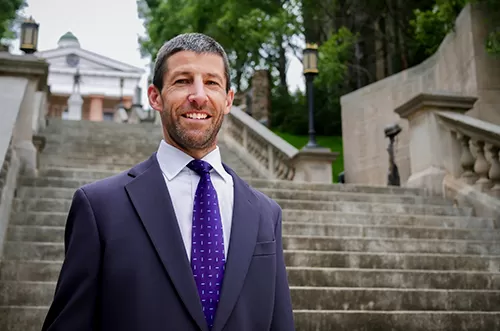Givago Growth, LLC v. Itech AG, LLC, 863 S.E.2d 684 (Va. Oct. 14, 2021)
Contanza Valdes and Givago Growth, LLC (the “petitioners”) entered into a partnership agreement with Artifact, LLC (“Artifact”) and two other individuals, which provided for each party to contribute an amount to the development of land in McLean, Virginia, each party to receive a proportionate share of the proceeds when the land was sold, and for petitioners to retain title to the property until it was sold. To acquire capital to fund their contribution, Artifact and Valdes borrowed $400,000 from iTech AG, LLC (“iTech”). Several months later, Artifact and Valdes defaulted on the iTech loan. Artifact and iTech then entered into a joint venture agreement, in which Artifact stated it would provide a collateral deed of trust on the McLean property to secure iTech’s contribution. Petitioners were not a party to the Artifact-iTech agreement. In 2018, Valdes met with iTech’s attorney, said he could not provide the promised collateral deed of trust, and agreed to assign any proceeds he would receive from the sale of the property to iTech. In September 2018, iTech filed a complaint asserting a claim for specific performance and demanding the petitioners provide a secured interest in the property by way of a deed of trust. iTech’s attorney also filed a lis pendens in the land records with respect to the property. When the lis pendens was filed, the property was already under contract for sale. In January 2019, the sales contract for the property closed, but $812,668.90 of the proceeds were held in escrow because of the pending litigation. In August 2019, iTech nonsuited its complaint and withdrew the lis pendens. The petitioners then filed a complaint against iTech and its attorney for malicious abuse of process, slander of title, tortious interference with contractual relations, and civil conspiracy due to the lis pendens. The circuit court sustained the demurrers of iTech and its attorney to petitioners’ original complaint and amended complaint on the grounds that a lis pendens is entitled to absolute privilege and dismissed the petitioners’ amended complaint with prejudice. The petitioners appealed.
The Supreme Court of Virginia held that the circuit court erred in sustaining the demurrers. Absolute privilege is an affirmative defense and affirmative defenses may not be raised in a demurrer, which tests only the facial validity of the allegations in a complaint rather than the validity of affirmative defenses. Words spoken or written in a judicial proceeding that are relevant and pertinent to the matter under inquiry are absolutely privileged from subsequent charges defamation. The rule of absolute privilege is broad and comprehensive, including within its scope all proceedings of a judicial nature whether pending in some court of justice, or before a tribunal or officer with judicial or quasi-judicial powers, and includes any proceedings for purpose of obtaining such remedy as the law allows. Previously, the Supreme Court of Virginia has held that the filing of a mechanic’s lien is subject to a privilege because it is a prerequisite to a suit to enforce the lien. A lis pendens is similarly intertwined with the filing of a complaint. While not necessary to institute a case, a lis pendens provides notice of the pending lawsuit and merely republishes the key information from the complaint. Extending absolute privilege to a complaint but not a lis pendens would be inconsistent. In addition, absolute privilege does not apply to non-defamation torts in Virginia, specifically including malicious abuse of process, tortious interference with contractual relations, and civil conspiracy. For the information in the lis pendens to be sufficiently “relevant and pertinent to the matter under inquiry” for the absolute privilege to apply, it must be determined whether lis pendens was so palpably wanting in relation to the subject matter of the controversy that no reasonable man could doubt its irrelevancy and impropriety. If it is, then the absolute privilege does not apply. However, this is a fact driven inquiry that must be resolved by the trial court.
Case Update: Givago Growth, LLC v. Itech AG, LLC
- Details
- Written by: Scott W. Kowalski, Mark A. Burgin, Thomas M. Wolf, Kenneth T. Stout and Jason F. Goldsmith





